For this Liverpool FC season review, we journey back to April 1901, and to Liverpool’s Central Station.
It’s a much grander looking place than it is today and we take our places among a 60,000-strong crowd. It’s late and the skies have turned dark, the meagre light from street lamps illuminates our faces as we stand on our tip-toes, straining our necks for a glimpse of our returning heroes.
Liverpool FC have been at the Hawthorns, in Birmingham, facing already relegated West Bromwich Albion, in a game that would see them either crowned league champions or experience heartbreak for the second time in three years.
The men from Anfield had come agonisingly close to their first league title in 1899, when a trip to the midlands – this time against Aston Villa – had seen them trounced 5-0. Villa would win the league courtesy of that rout and the pain still burns in the guts pf all Reds.
Many of the people in the throng don’t know the result of the game. Rumours sweep through the crowd, some say Liverpool have triumphed, others say we’ve blown it again. Then the newspapers billboards declare LIVERPOOL ARE CHAMPIONS. A huge roar fills the night sky. Just nine years after their inception, John Houlding’s Reds are champions of England.
The game had kicked off at 5.30pm and it’s now nearing 11pm. The pubs around the station are filled to bursting and from inside laughter and song spills out into the street. The sound of clinking glasses and old sea shanties, their lyrics converted to into odes to the team, fill our ears.
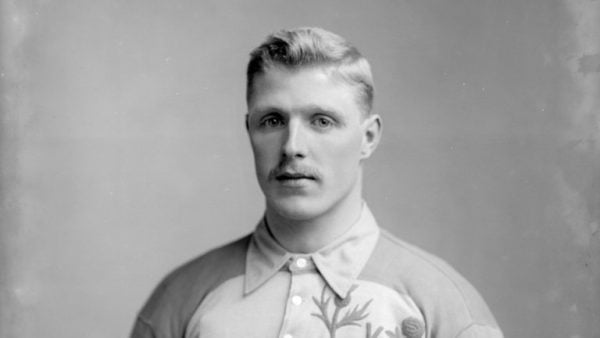
We’re desperate for a glimpse of them, of Scotsman Alex Raisbeck our giant golden-haired captain, or Johnny Walker, a man who looked like a wild-west gunslinger, and who we would soon discover had scored the goal that won the league. The Reds were a big side, averaging 12 stone in weight and on the field they had the power to boss proceedings and the will to battle on, despite a season of some mediocre football.
As we wait patiently, thoughts drift back to the promise of the opening games. A run of 11 matches had seen Liverpool lose just once, winning seven and scoring 26 goals (more than anyone in the league). They had risen to third place and were four points off the top with a game in hand.
That run had included a creditable draw at Goodison Park, against our city rivals, a 5-0 home demolition of West Brom and a 5-1 rout over Aston Villa. The Red juggernaut was cruising, it seemed. Then the wheels came off.
Winter slump
Reds manager Tom Watson and his men will have been brimming with confidence as they embarked on the all-important winter schedule. However, a disappointing 3-2 defeat away to The Wednesday, in Sheffield, saw Liverpool slump after they had taken the lead within three minutes. Liverpool would huff and puff in search of a leveller, but the Sheffield side held out and sent the Reds home with nothing to show for their struggles.
That defeat was the beginning of a miserable run of thirteen games. The Reds lost seven of them, drawing one and winning just three. One of those defeats was a chastening 2-1 defeat at home in the Merseyside derby.
The game took place in mid January 1901, in terrible weather conditions. The Liverpool Mercury reported that the match was almost abandoned. However, it would eventually get underway at 14:45 with huge pools of water collecting on the pitch, which was giving way under foot.
The Blues took full advantage, lofting long balls into the Liverpool box, and by all accounts the Reds back line was struggling to cope. Jack Taylor put Everton in front after 18 minutes and the home side were in trouble. Still, they somehow managed to rally and in the 37th minute Jack Cox levelled for Liverpool, and that’s how it stayed until half time.
In a game played in almost swamp-like conditions, the result could have gone either way. The team that wanted it most would emerge victorious, and that sadly was Everton. In the 62nd minute, Taylor grabbed his and Everton;s second and the points would return to Goodison. Liverpool had now been leapfrogged by the Blues and the sense of humiliation and disappointment in the Red half of the city would have been palpable.
They would be eliminated from the FA Cup in their next outing, losing 2-0 to Notts County. As we stand on Renshaw Street, in front of Central Station, in April, we reflect on what a low point that was.
Another league defeat followed at home to Bolton. Liverpool were now eighth in the league, nine points off the top and facing a grim trip north to second place Sunderland. Few would have relished the encounter, but it would prove to be something of a turning point.
Unbeaten dozen on the run-in
There were just 12 games remaining. If Liverpool were to get anywhere near the league title – and few on Merseyside or anywhere else gave them a chance – they could not afford to lose another game. And they didn’t.
Their improbably 1-0 victory over Sunderland at Roker Park was like a slap in the face to the slumbering Red men. It seemed to wake them up and instil some fight back into this punch-drunk outfit.
A tough trip to Preston North End saw them battle to a 2-2 draw, in a game they twice led. Despite twice giving up their advantage, the Reds drew strength from the result. By 27 April, Liverpool had gone 10 games unbeaten, winning seven and drawing three and had risen to second place.
They now faced fourth-placed Nottingham Forest at Anfield in their penultimate game of the season. Liverpool sat two points behind league leaders, Sunderland.
Crucially, however, they had played a game more than the Reds. Watson’s men needed a win to draw level, setting up a dramatic last chance to win the title at the Hawthorns two days later, with their game-in-hand.
Anfield was packed to the rafters and the 20,000 in attendance were treated to fine weather and spring sunshine as they roared their team onto the pitch. The weather didn’t hold up and a sprinkling of showers would have soaked those stood on an uncovered Spion Kop.
In the 24th minute, Forest went down to 10 men after John McPherson had left the field injured. With no substitutes allowed, they would have to soldier on. After a season of rotten luck, this would be the break the Reds needed. It took Liverpool just one minute to capitalise through Jack Cox. This is how the Liverpool Echo reported the goal in 1901.
“…the home right wingers worked the ball up towards the Notts goal, and at the proper moment Robertson shot hard, and struck one of the goal posts, and rebounded to Cox, who promptly fastened on and placed the ball past Linacre. Liverpool’s goal, being cheered to the echo.”
You can imagine the noise inside the ground as the ball hit the net and picture the joyous scenes on the pitch. This was a goal that drew Liverpool level with the league leaders. Forest, wounded by the blow, roared briefly into life. But, the Reds were in complete control. The Echo explains,
“For a minute or two afterwards, the Foresters bucked up, but they were gradually forced back, and their stronghold was subjected again to a strong bombardment. Satterthwaite, Robertson, Walker, and Raybould each trying their hand Linacre saved twice from the last-named player.”
Liverpool dominated the second half and could have scored many. Sam Raybould had a goal ruled out for offside and Linacre, in goal for Forest, pulled off a string of saves. They eventually succumbed however to a “beautiful shot” from Bill Goldie in the 62nd minute. That put the Reds 2-0 up and Forest were now out of it. The Echo was emphatic in its assertion that this had been a title decider and that Liverpool thoroughly deserved their place at the top of the table.
“…the two features of the game were the immense amount of pressure on the part of Liverpool, and the brilliant goalkeeping of Linacre, who kept out the finest of shots from Cox, Satterthwaite, and Raybould in splendid style, and was cheered all round the ground.”
The win had drawn the Reds level at the top with Sunderland, but the side from the North East had a vastly superior goal difference. Liverpool needed to avoid defeat in the Midlands 48 hours later and the title would be theirs for the first time.
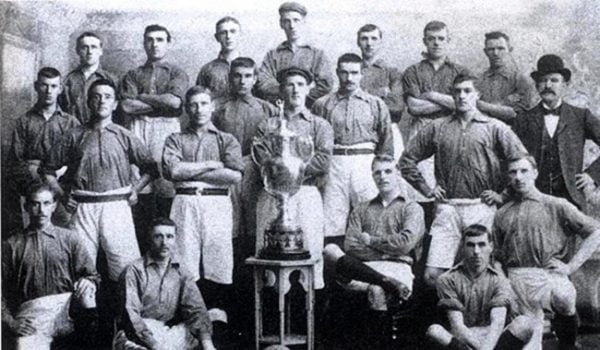
Title fever gripped Merseyside and the sense of anticipation had been almost too much to bear. The Liverpool squad were in confident mood though, as they journeyed South to face Albion.
Club captain Raisbeck later recalled turning to his teammate Bill Goldie on the train trip to Birmingham and asking if he felt they could do it. This is how he remembered the conversation.
“It was a momentous match as a visit to Brum was not lightly taken by any club in those days. But we simply had to win. All the boys were out for it. I remember I said to Willie Goldie on the train when we made for Brum on the day of the match. ‘Do you think we’ll manage it, Bill?’ I think I can see the look on his face as he replied. ‘Think we will manage it?’ did ye say. ‘Of course we’re going to manage it.’”
It didn’t quite work out as the walk-in-the-park it perhaps should have been, but Liverpool did manage to win the game 1-0. In reality, they only needed a draw. But, after a tough and sometimes calamitous season it was perhaps fitting that this battling Reds team finished with a win. Raisbeck recalled:
“As it turned out we didn’t manage it in that confident sort of way as Willie Goldie’s answer would have made believe. Time was wearing on and we still wanted that goal. At last! A goa- a goa- not yet. The ball was lying on the goal-line. Johnny Walker and the ‘Throstle’s’ goalkeeper had got mixed up some way and were lying near the back of the net, and there was no friendly foot to put the ball through.
“I know I stopped dead. I was fascinated, I suppose, by the sight of both goalkeeper and Walker starting to wrestle towards the ball at the same instant. Which would reach it first? There was such a deathly stillness. I fancied I heard the tick of the referee’s watch, although he was twenty yards from me, and it seemed as though half an hour had passed. But it must have lasted only a second or two. The goalie was on his hands and knees crawling towards the ball, when Walker, with a cat-like movement, wriggled his body along the ground and just tipped the ball over the line and the goal and championship were ours.”
Welcome Home
Now, we’re back on Renshaw street. Another giant roar fills the air. “They’re here, the champions are home,” people shout. Eager children, their clothes scruffy and their feet bare, dart between the legs of men and women dressed in their best clobber. Some will have come straight from work, others will have dodged the night shift to catch sight of the title winners.
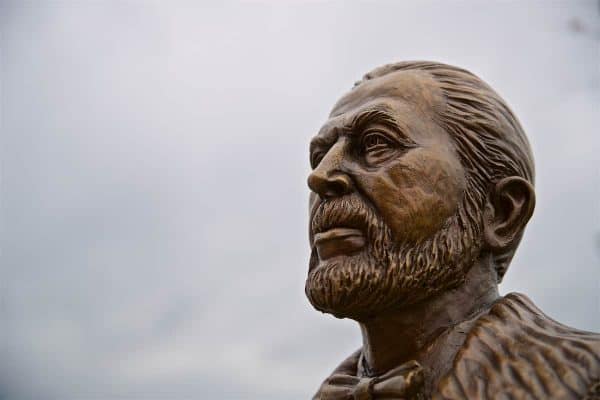
Then, the team emerges from the station, on the back of a cart or ‘brake’ pulled by horses. They are swamped by the crowd. Raisbeck is hoisted aloft and the crowd sing and shout for him to make a speech. He declines, and the players continue their journey to the Sandon Pub, where celebrations will continue long into the night. Here’s how our first championship-winning captain recalls events:
“What a night after the match! We got a great send-off at Snowhill Station by the Brummagen folks who were good enough sports to cheer us off as League champions, but we were unprepared for what was waiting us at Liverpool. I should imagine there was a crowd of between 50-60,000 packed in front of the Central Station, and right along nearly as far as Lime Street.
“The street was literally black with people, and in the time-honoured way the horses were dispensed with and our brake practically carried along by willing hands to our headquarters at the Sandon Hotel. As we went along the crowd yelled for me to make a speech from the brake. I was not to be found, however, as I found it convenient to lie low behind some of the others. Speechmaking was never in my line.”
This was to be the first of many glorious triumphs, and those Reds who turned up to welcome home their heroes in 1901 would set a benchmark in terms of support. We would see many more magical homecomings in the years that followed, but few will have tasted as sweet.
Liverpool FC, 1900-01
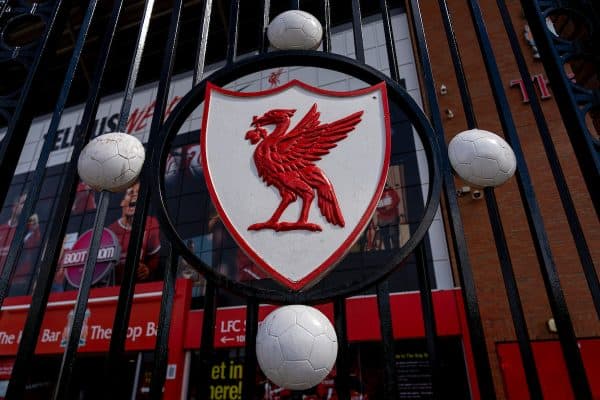
Manager: Tom Watson
Captain: Alex Raisbeck
Top Scorer: Sam Raybould (18, all comps)
Most Appearances: Bill Goldie, Bill Perkins, Tommy Robertson (36, all comps)
League Position: 1st (45 points)
FA Cup: First Round
Total games: 36
Games won: 20
Games drawn: 7
Games lost: 9
Clean sheets – league: 14
Clean sheets – overall: 15
Total goals: 160

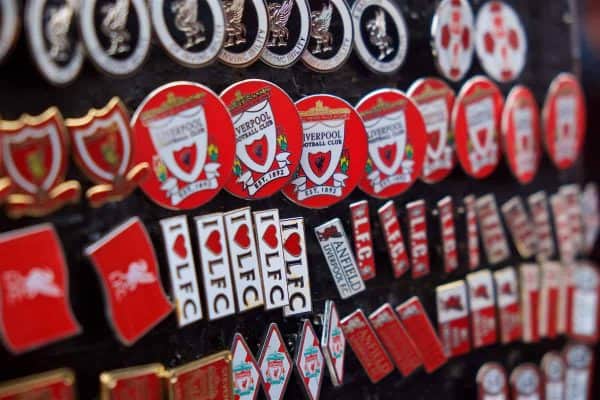







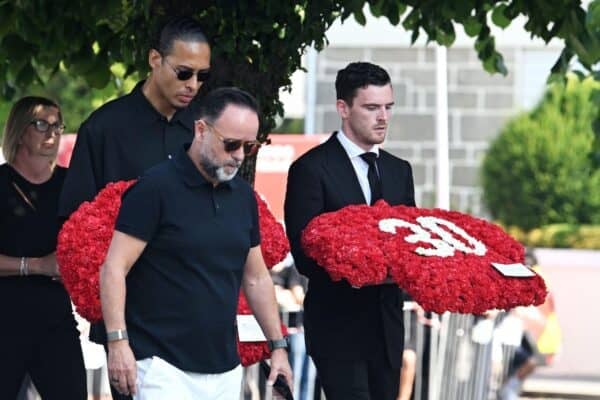
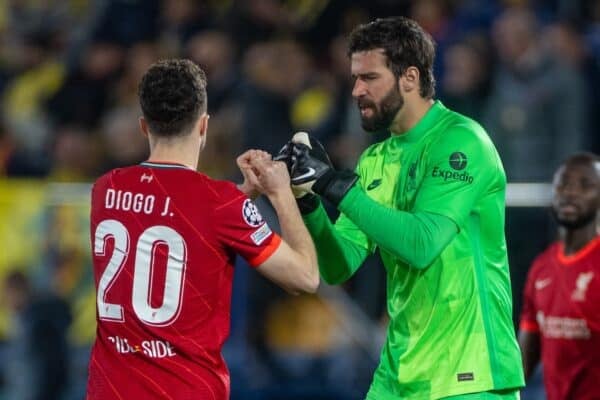
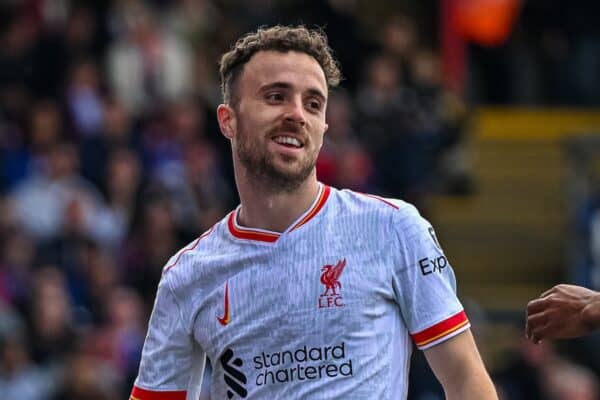
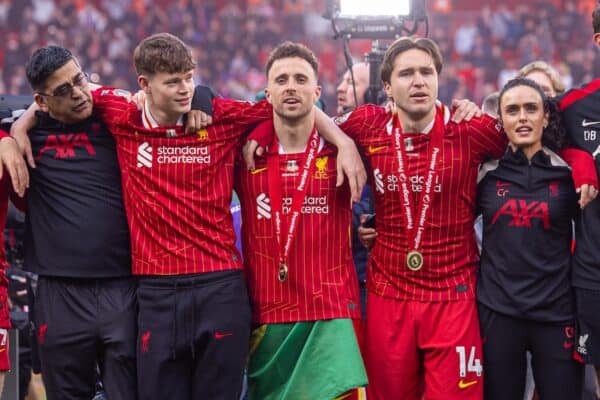





Fan Comments